 Petzlover
Petzlover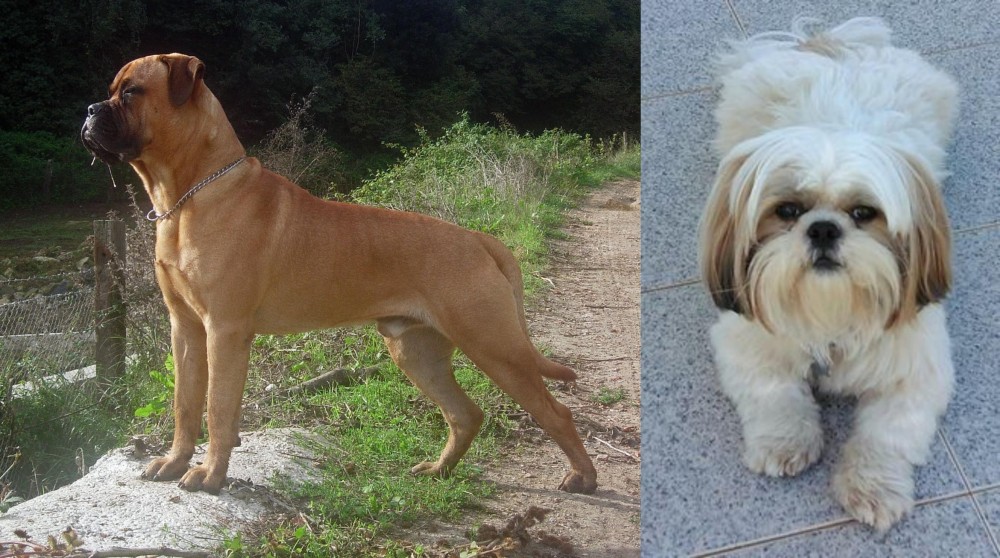 Bullmastiff is originated from United Kingdom but Shih Tzu is originated from China. Bullmastiff may grow 40 cm / 16 inches higher than Shih Tzu. Bullmastiff may weigh 52 kg / 115 pounds more than Shih Tzu. Bullmastiff may live 6 years less than Shih Tzu. Both Bullmastiff and Shih Tzu has almost same litter size. Bullmastiff requires Low Maintenance. But Shih Tzu requires High Maintenance
Bullmastiff is originated from United Kingdom but Shih Tzu is originated from China. Bullmastiff may grow 40 cm / 16 inches higher than Shih Tzu. Bullmastiff may weigh 52 kg / 115 pounds more than Shih Tzu. Bullmastiff may live 6 years less than Shih Tzu. Both Bullmastiff and Shih Tzu has almost same litter size. Bullmastiff requires Low Maintenance. But Shih Tzu requires High Maintenance
 The Old English Mastiff as well as the Bulldog are the breeds behind the Bull Mastiff. The Bullmastiff was originally developed in England around the 1860’s. Gamekeepers in England wanted a large, brave, robust dog which could help with keeping poachers away from their large estates which kept game.
The Old English Mastiff as well as the Bulldog are the breeds behind the Bull Mastiff. The Bullmastiff was originally developed in England around the 1860’s. Gamekeepers in England wanted a large, brave, robust dog which could help with keeping poachers away from their large estates which kept game.
As these large estates dwindled, so did the need for the services of the Bullmastiff and later they were simply bred to be family companions. As more Old English Mastiffs were bred, the dog became lighter, so that light tan or fawn became the preferred color.
The breed was officially recognized by the English Kennel Club in 1924, and the American Kennel Club in 1933.
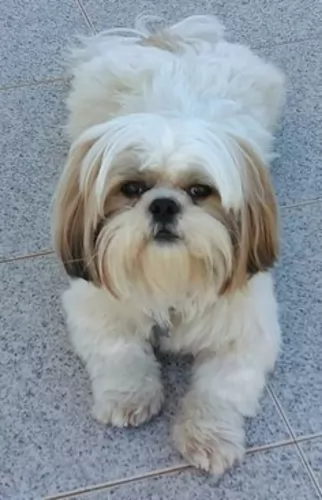 The Shih Tzu is an Imperial Chinese breed developed by palace breeders hundreds of years ago with breed stock from the Tibetan lines. It is quite probable that the Shih Tzu was originally a cross between two Sino-Tibetan ancient dogs – the Pekingese and the Lhasa Apso. Based on their looks, the Shih Tzu means the lion dog, but they were really very pampered palace dogs living with the Chinese emperors and families. The emperors were always gifting the breeders who developed the most affectionate, gentle and beautiful Shih Tzus.
The Shih Tzu is an Imperial Chinese breed developed by palace breeders hundreds of years ago with breed stock from the Tibetan lines. It is quite probable that the Shih Tzu was originally a cross between two Sino-Tibetan ancient dogs – the Pekingese and the Lhasa Apso. Based on their looks, the Shih Tzu means the lion dog, but they were really very pampered palace dogs living with the Chinese emperors and families. The emperors were always gifting the breeders who developed the most affectionate, gentle and beautiful Shih Tzus.
Until the 1930’s the Shih Tzu was not known to the world outside the emperor’s palace. Once the breed did come out from behind the palace walls, they were immediately popular. Much debate went on about how to refine the breed as clubs began to spring up in Peking and then in England. It was not until 1969 the Shih Tzu was recognized and entered in the AKC Stud Book.
While the original Shih Tzu might have been a mix between the Pekingese and the Lhasa Apso, today’s breed spread around the world after the second world war. In Europe in the 1930’s the breed was classified as Apsos. In 1935 the first Shih Tzu Club of Europe was formed, and the first standard was written, and the breed was categorized as the Shih Tzu.
Following World War II, soldiers brought the dogs to the States from Europe. By the 1950’s the breed was growing in popularity and the AKC recognized the breed in 1969 as members of the Toy Group. They are now recognized by all major kennel clubs throughout the western world. They are recognized by the Federation Cynoloqique Internationale in the Companion and Toy Group, among Tibetan breeds.
The Shih Tzu is a good watchdog, but it was bred to be a companion animal. It is a friendly, open breed that welcomes strangers. They are great with other animals and children as well as adults.
 Bullmastiffs are large, brachycephalic dogs, and heights are between 61 and 68cm and the dog weight anything between 41 – 59kg. While it isn’t particularly tall, the dog is thickly set with a deep chest and strong, muscular legs. The Bull Mastiff has a powerful build and plenty of strength with an imposing look on his face. He is a powerful, active breed with a short coat which is also weather resistant and can be any shade of fawn, red or brindle.
Bullmastiffs are large, brachycephalic dogs, and heights are between 61 and 68cm and the dog weight anything between 41 – 59kg. While it isn’t particularly tall, the dog is thickly set with a deep chest and strong, muscular legs. The Bull Mastiff has a powerful build and plenty of strength with an imposing look on his face. He is a powerful, active breed with a short coat which is also weather resistant and can be any shade of fawn, red or brindle.
The dog has a black muzzle and the skull is large and square. The ears are set high and are short and floppy. The tail was once docked, giving the dog an even more distinctive, powerful appearance, but these days, due to regulations, the tail is left long.
The Bullmastiff is a loyal, devoted, fearless, protective dog. When he belongs to a human family, he becomes a companion but a fierce protector too, being a territorial dog. They love being with their family and can be good with children too, and even other pets, but proper training and socialization will be important. They aren’t aggressive around strangers, though he does make a wonderful guard dog.
He is intelligent and stubborn and if you don’t want him becoming destructive, even though he is a low-energy dog, you will need to exercise him and walk him every day.
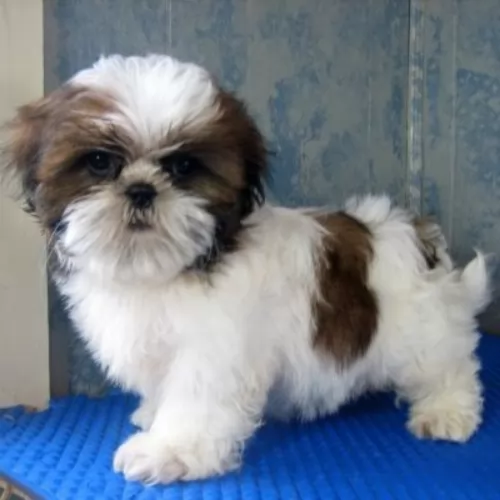 This is a breed of lively, sturdy and alert little dogs with a beautiful double coat that is flowing and long. In its full glory the Shih Tzu coat is touching the floor all the way around the dog. The dog’s bearing is as royal as its history, arrogantly carrying his head high and his tail curving over his back.
This is a breed of lively, sturdy and alert little dogs with a beautiful double coat that is flowing and long. In its full glory the Shih Tzu coat is touching the floor all the way around the dog. The dog’s bearing is as royal as its history, arrogantly carrying his head high and his tail curving over his back.
The Shih Tzu is a solid, compact breed with weight and substance. They may be a small dog, but they are a strong one. They have large dark eyes with a short muzzle and fur covered drop ears. They are just a little longer than they are tall with a distinct underbite.
There are a few differences between the European or UK Kennel Club standard and the American Kennel Club AKC standard. As opposed to the UK standard the AKC standard states that:
• The hindquarters are muscular while the front are straight. They are balanced in that they are not too long or too short.
 Contrary to his formidable looks, the Bullmastiff is a gentle, affectionate pet when he has been properly socialized. He is a great pet for families and will guard them with his life. He is loyal and devoted but can be somewhat aloof, particularly with strangers.
Contrary to his formidable looks, the Bullmastiff is a gentle, affectionate pet when he has been properly socialized. He is a great pet for families and will guard them with his life. He is loyal and devoted but can be somewhat aloof, particularly with strangers.
He isn’t a highly energetic dog and he is more or less low maintenance and easy-going. Feed him correctly, give him a nice, warm sleeping spot to call his own and give him attention like he deserves as a family member. The Bullmastiff will reward you by being a solid and devoted companion.
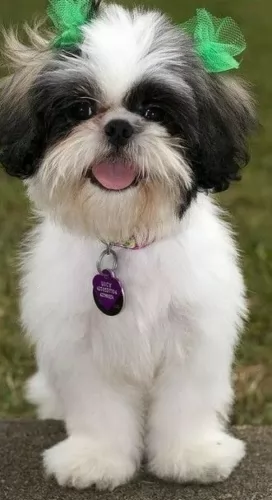 2.Special talents – they were bred to be companion animals. They are friendly and loyal.
2.Special talents – they were bred to be companion animals. They are friendly and loyal.
3.Adaptability Yes very much so. They can live in an apartment or on a farm. It doesn’t matter and they don’t need a yard.
 The Bullmastiff is a generally healthy breed, but even so, the breed is known for having to contend with certain health issues. He doesn’t have a particularly long life span either and can live to be about 10, ll or 12 years of age. Some of the more common illnesses to look out for include -
The Bullmastiff is a generally healthy breed, but even so, the breed is known for having to contend with certain health issues. He doesn’t have a particularly long life span either and can live to be about 10, ll or 12 years of age. Some of the more common illnesses to look out for include -
This is a condition where the thighbone doesn’t fit properly into the hip joint. The troublesome part is that it can lead to arthritis, pain and lameness for your pet.
This is a worrisome, life-threatening condition for a dog, particularly for large, deep-chested dogs such as your Bullmastiff. Instead of feeding your Mastiff one large meal, it is recommended to feed him 2 smaller meals. Bloat occurs when the stomach is distended with gas or air and twists, restricting the normal return of blood to the heart.
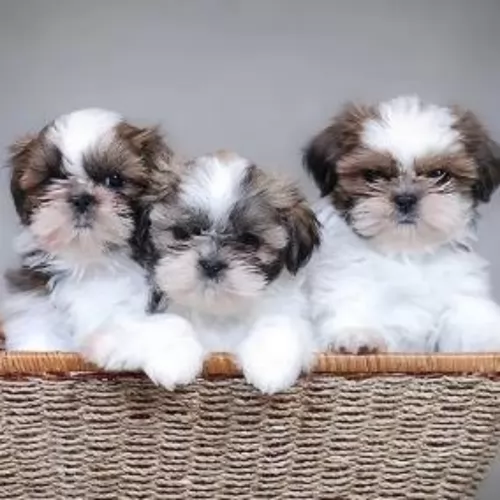 For many breeds that have the advantage of isolation like the Shih Tzu did with the emperors of China usually have very little genetic health issues. Most of the breed is indeed healthy but there are some issues.
For many breeds that have the advantage of isolation like the Shih Tzu did with the emperors of China usually have very little genetic health issues. Most of the breed is indeed healthy but there are some issues.
• Brachycephalic airway obstructive syndrome due to the shape of their face and head causes them to have breathing issues. They cannot handle heat and they cannot swim. They can have an upper airway obstruction that makes it hard for them to breath. If this is bad enough, surgery may be required.
• Hypothyroidism – thyroid does not produce the hormones necessary for metabolism to work effectively. This can lead to weight gain, hair loss, lethargy and muscle loss. It can be treated effectively.
• Issues of the eyes include – cataracts, corneal dryness and inflammation, progressive retinal atrophy, improperly closing eyelids and retinal detachment.
 The Bullmastiff has a short dense coat which is looked upon as low-maintenance. He will require a brushing twice a week, being a light to average shedder. He is a dog that tends to drool quite a bit so you may need to wipe away slobber from time to time. Because his face has wrinkles, check the creases to ensure they remain free of dirt and food particles to ward off infection.
The Bullmastiff has a short dense coat which is looked upon as low-maintenance. He will require a brushing twice a week, being a light to average shedder. He is a dog that tends to drool quite a bit so you may need to wipe away slobber from time to time. Because his face has wrinkles, check the creases to ensure they remain free of dirt and food particles to ward off infection.
Check his ears at the same time, brush his teeth at least twice a week with special dog-toothpaste and brush and keep the nails trimmed.
Your large Bullmastiff will require high-quality commercial dog food but he will also need some home-made food in between such as rice, vegetables and meat. He is a large dog and will have to get an intake of raw meat too. Dogs denied raw meat can end up with skin problems as well as other health issues.It is better to feel your Bullmastiff smaller meals than to give him one large meal which he scoffs down quickly. Smaller meals will help prevent the most dangerous illness known as Bloat.
Ensure he has a steady supply of fresh, cool water.
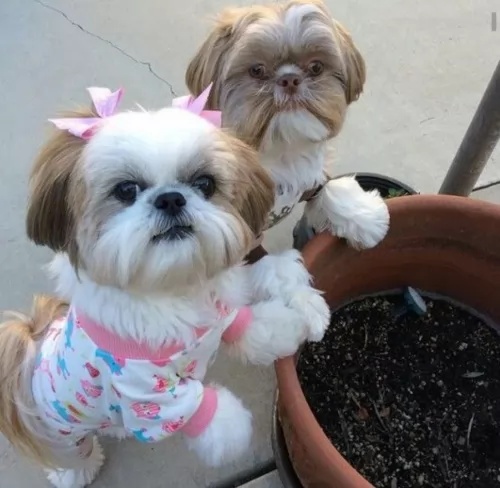 1.Feeding the puppy – this is a toy dog so don’t overfeed. They have a tendency to become obese. Calorie and weight level need to be calculated with any diet you feed. The diet should be high quality with plenty of protein made for toy dogs. Feed the puppy at least 3 times a day, maybe four in very small amounts, never more than ½ cup per day.
1.Feeding the puppy – this is a toy dog so don’t overfeed. They have a tendency to become obese. Calorie and weight level need to be calculated with any diet you feed. The diet should be high quality with plenty of protein made for toy dogs. Feed the puppy at least 3 times a day, maybe four in very small amounts, never more than ½ cup per day.
2.Feeding the adult - this is a toy dog so don’t overfeed. They have a tendency to become obese. Calorie and weight level need to be calculated with any diet you feed. The diet should be high quality with plenty of protein made for toy dogs. Feed the adult once or twice a day in larger amounts than the puppy but never more than ¾ of a cup per day.
3.Points for Good Health - most Shih Tzu’s are hardy with exceptionally good health.
This is a pampered, not high energy dog. However, she still needs playtime, which can be indoors and short walks outdoors every day.